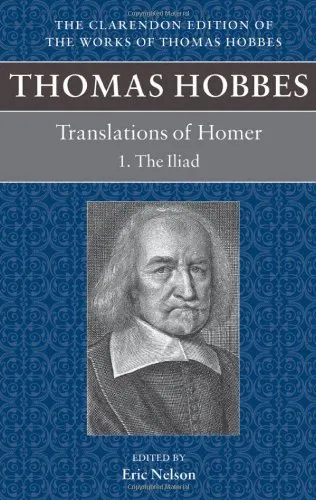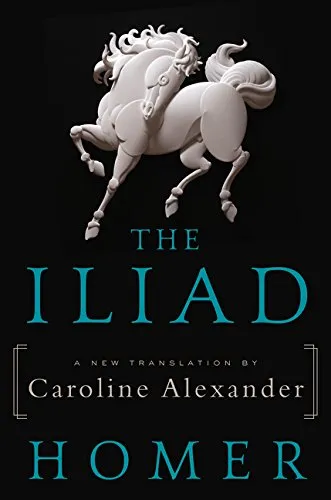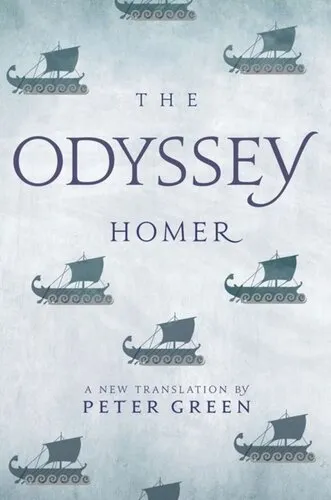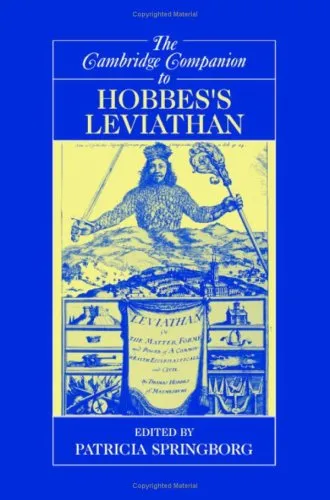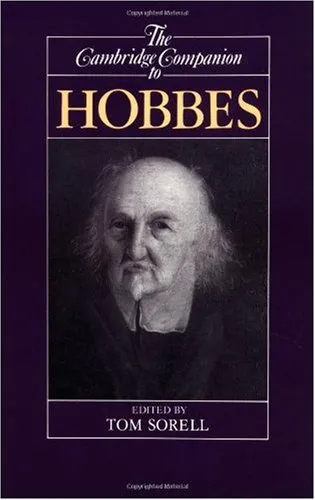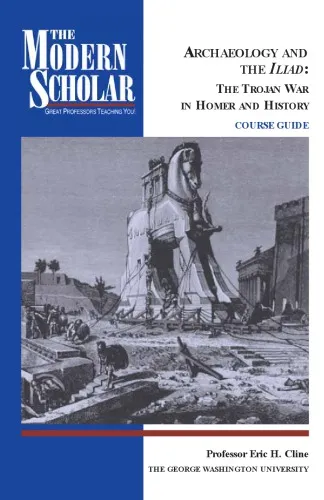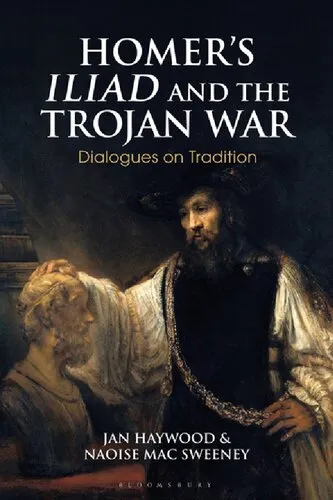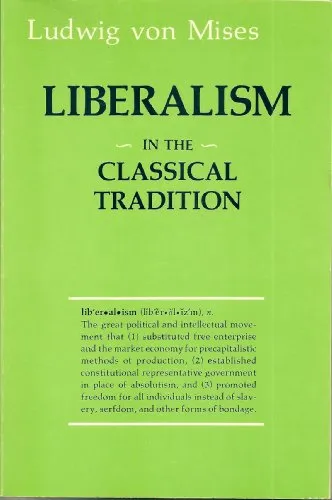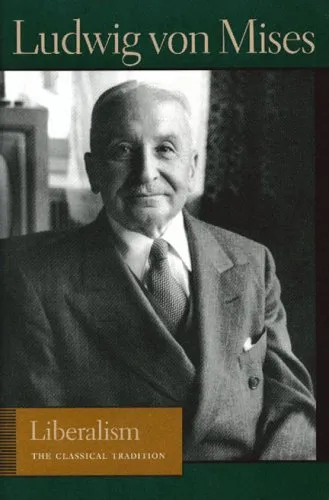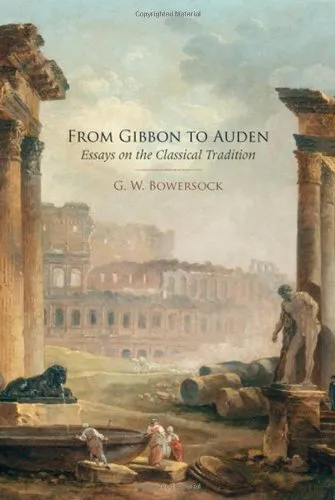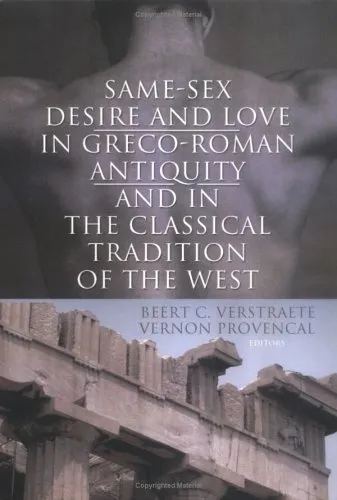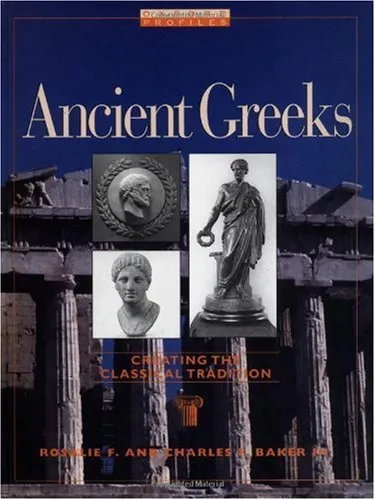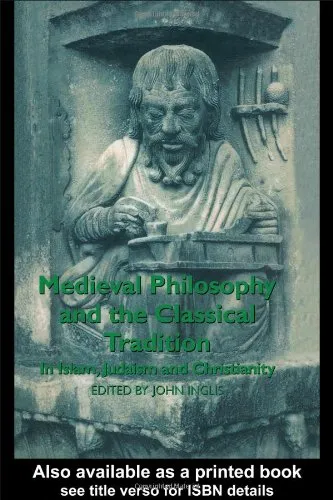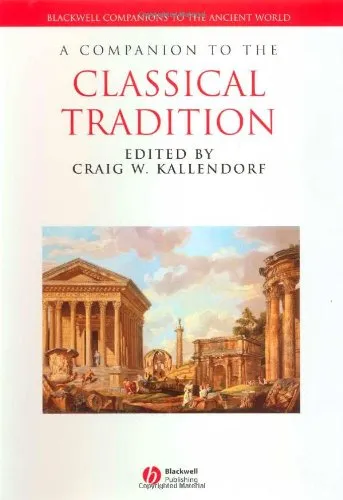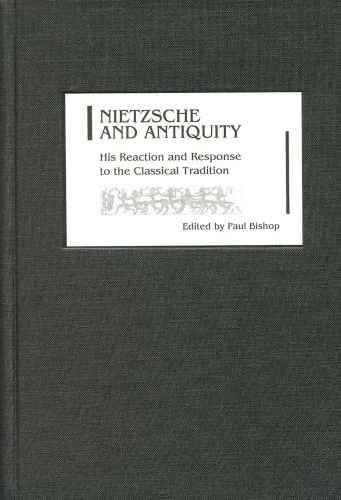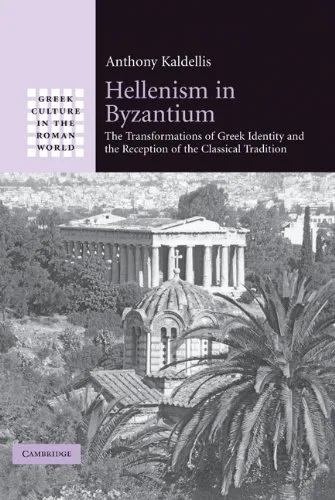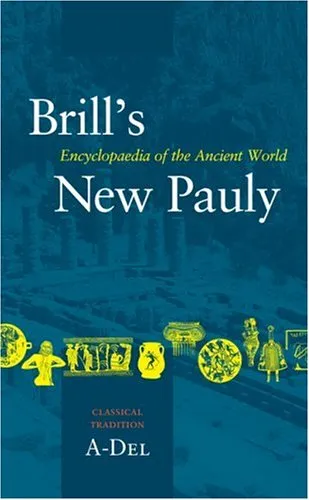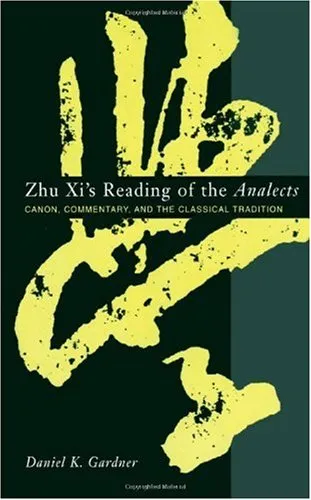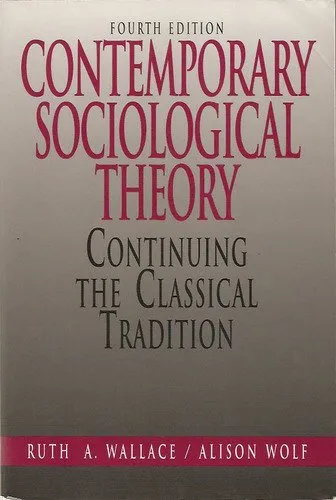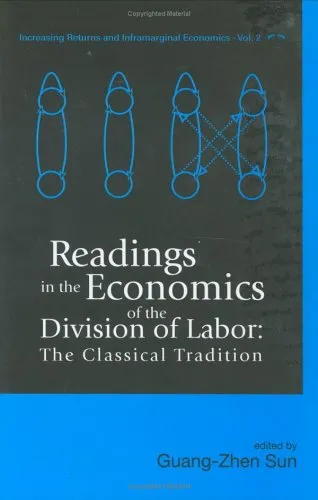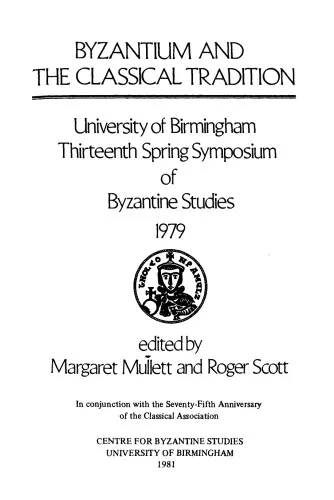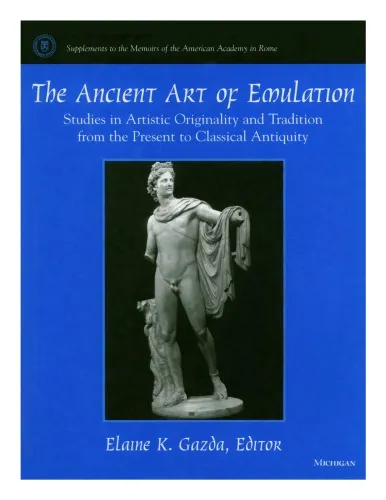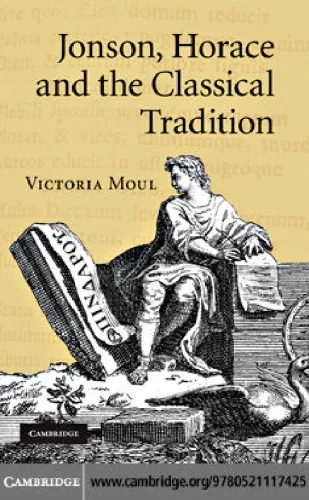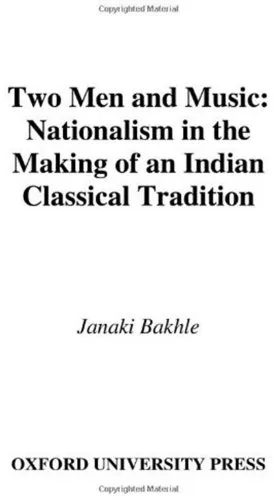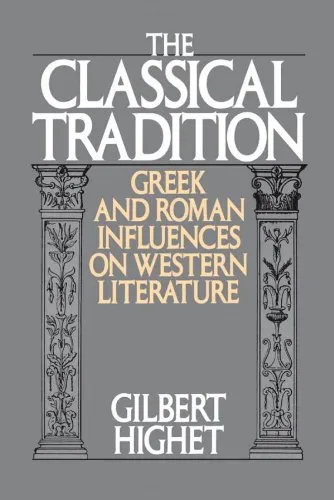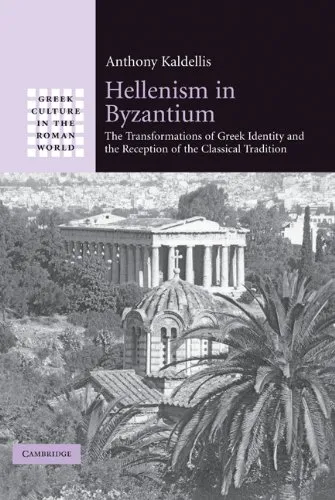Thomas Hobbes Translations of Homer: The Iliad and the Odyssey
5.0
بر اساس نظر کاربران

شما میتونید سوالاتتون در باره کتاب رو از هوش مصنوعیش بعد از ورود بپرسید
هر دانلود یا پرسش از هوش مصنوعی 2 امتیاز لازم دارد، برای بدست آوردن امتیاز رایگان، به صفحه ی راهنمای امتیازات سر بزنید و یک سری کار ارزشمند انجام بدینکتاب های مرتبط:
Persian Summary
معرفی کتاب 'Thomas Hobbes Translations of Homer: The Iliad and the Odyssey'
کتاب 'Thomas Hobbes Translations of Homer: The Iliad and the Odyssey' یک نمونه بارز از ادبیات کلاسیک است که توسط توماس هابز ترجمه و توضیح داده شده است. این کتاب نه تنها ترجمه ای از آثار برجسته هومر محسوب میشود، بلکه تحلیل دقیقی از اندیشههای هابز نیز ارائه میدهد. در ادامه به بررسی جزئیات این کتاب میپردازیم.
خلاصهای دقیق از کتاب
در این کتاب، توماس هابز تلاش کرده است تا حماسههای معروف هومر را به زبان انگلیسی قرن هفدهم برگرداند. او نه تنها به ترجمه متون پرداخته، بلکه تلاش کرده تا از دیدگاه فلسفی خود به فهم بهتر این آثار کمک کند. 'ایلیاد' و 'اودیسه' دو شاهکار بینظیر در این حماسهها هستند که هر یک داستانی از قدرت، عشق، و ماجراجویی را بیان میکنند. هابز با دقت به جزئیات و با زبانی شفاف، تلاش کرده است به عمق مفاهیم این آثار بپردازد و مخاطبان را با اندیشههای عمیق هومر آشنا سازد.
نکات کلیدی
- ارتباط بین فلسفه هابز و ادبیات کلاسیک
- روش ترجمه و تفسیر منحصر به فرد هابز
- اهمیت قدرت و حکومت در 'ایلیاد' و 'اودیسه'
- پیوند داستانهای هومر با فلسفه سیاسی
جملات معروف از کتاب
"Judge then wickedness in man as you should the worm in a fruit, which is nourished by the same that feeds the growing of the fruit, and the eating of man."
"The sea cracked the ships; the sails were torn from the side, and the men were afraid."
چرا این کتاب مهم است
این کتاب به دلیل تلاش برای ترکیب فلسفه سیاسی هابز با زبان و داستانهای هومر از اهمیت خاصی برخوردار است. توماس هابز به عنوان یکی از فیلسوفان بزرگ در تاریخ تفکر غربی، با رویکردی متفاوت به این آثار پرداخت و توانست درک جدیدی از مفاهیم قدرت و انسانیت را ارائه دهد. ترجمههای وی نه تنها به عنوان متونی ادبی، بلکه به عنوان آثاری فلسفی قابل تحلیل هستند و همچنان تأثیرگذار باقی ماندهاند. این کتاب میتواند به دانشجویان فلسفه، علاقهمندان به ادبیات کلاسیک و پژوهشگران مطالعات هومری برای درک بهتر این مفاهیم کمک کند.
Introduction to Thomas Hobbes Translations of Homer: The Iliad and the Odyssey
Thomas Hobbes, an influential philosopher of the 17th century, is widely recognized for his profound contributions to political philosophy. Less well-known, however, are his translations of two of the most seminal texts in classical literature: Homer's "The Iliad" and "The Odyssey." These translations reveal not just Hobbes's linguistic prowess, but also offer insights into his philosophical perspective. This book aims to illuminate Hobbes's rendering of these epic poems, providing readers with both a literary and philosophical exploration of his work.
Detailed Summary of the Book
In this translated compendium, Hobbes undertakes the immense task of bringing Homer's Greek epics into English, endeavoring to maintain the poetic grandeur while making them accessible to a contemporary audience. "The Iliad" tells the gripping story of the final weeks of the Trojan War, focusing on the hero Achilles and his wrath, while "The Odyssey" follows the perilous journey of Odysseus as he attempts to return home post-war. Hobbes translates these narratives with a distinctive style, which reflects his characteristic clarity and precision.
Thomas Hobbes is known for his straightforward prose, which in his translations, helps demystify the often dense and archaic language of Homer. His approach balances fidelity to the original texts with an adherence to 17th-century sensibilities, providing an accessible interpretation that resonates with both classicists and modern readers. The translation work was not merely linguistic but contextual, as Hobbes infused his interpretations with his understanding of human nature, conflict, and the social order.
Key Takeaways
A few enduring lessons emanate from Hobbes's translations of Homer. First, Hobbes demonstrates the continued relevance of classical themes. By engaging with ideas of war, heroism, and the complexities of human relationships, these epics are shown to remain pertinent across centuries. Second, Hobbes’s work reflects his philosophical leanings, often highlighting the brutish nature of humanity that he famously theorized in 'Leviathan.' Lastly, the book serves as an exploration of translation as an art form, emphasizing not just literal translation but the conveyance of spirit and meaning.
Famous Quotes from the Book
"This is the invasion of men’s hearts, seeing our lives are guarded by no better watchdogs than our own thoughts." — The Iliad
"In peace, there's nothing so becomes a man as modest stillness and humility; but when the blast of war blows in our ears, then imitate the action of the tiger." — The Odyssey
Why This Book Matters
This translation of Homer's epics by Thomas Hobbes matters for several reasons. It bridges classical antiquity with the emerging modern philosophical discourse of Hobbes's era, providing valuable insights into the convergence of literary art and philosophical inquiry. By contributing his translation, Hobbes opens up a conversation between the distant past and the then-present, illustrating the timelessness of the human condition as depicted in literature. This book stands as a testament to Hobbes's versatility, evidencing his ability not just as a philosopher, but as a translator and advocate for the humanistic education.
Moreover, Hobbes's translations serve as a critical resource for understanding the nuances of interpretation and translation theory, which continue to influence translators today. His work invites readers to consider the transformative power of translation and encourages a deeper appreciation of how meaning is adapted across languages and cultures. As such, the book is an indispensable companion for enthusiasts of literary history, philosophy, and translation studies alike.
دانلود رایگان مستقیم
شما میتونید سوالاتتون در باره کتاب رو از هوش مصنوعیش بعد از ورود بپرسید
دسترسی به کتابها از طریق پلتفرمهای قانونی و کتابخانههای عمومی نه تنها از حقوق نویسندگان و ناشران حمایت میکند، بلکه به پایداری فرهنگ کتابخوانی نیز کمک میرساند. پیش از دانلود، لحظهای به بررسی این گزینهها فکر کنید.
این کتاب رو در پلتفرم های دیگه ببینید
WorldCat به شما کمک میکنه تا کتاب ها رو در کتابخانه های سراسر دنیا پیدا کنید
امتیازها، نظرات تخصصی و صحبت ها درباره کتاب را در Goodreads ببینید
کتابهای کمیاب یا دست دوم را در AbeBooks پیدا کنید و بخرید
1751
بازدید5.0
امتیاز0
نظر98%
رضایتنظرات:
5.0
بر اساس 0 نظر کاربران
Questions & Answers
Ask questions about this book or help others by answering
No questions yet. Be the first to ask!
